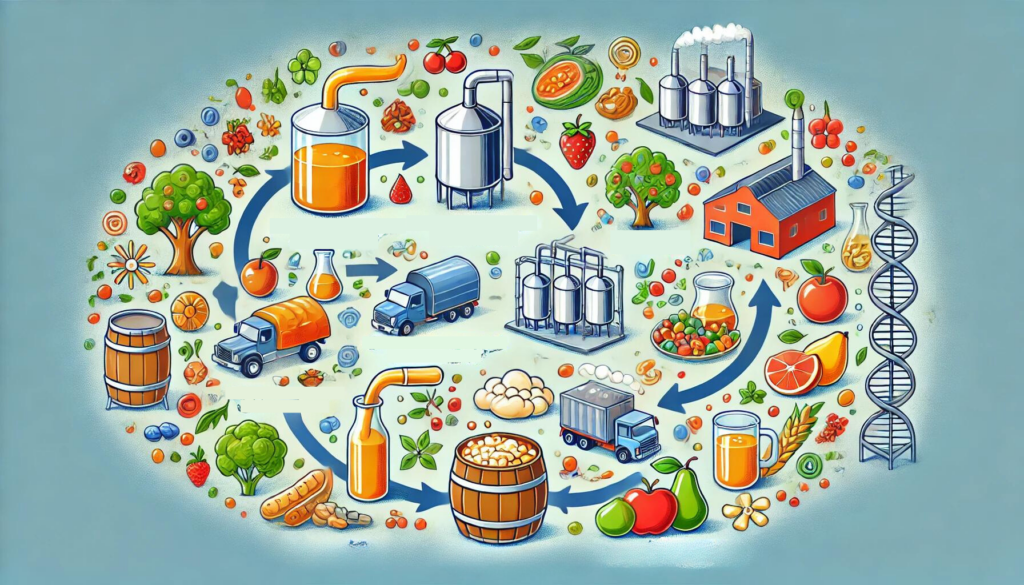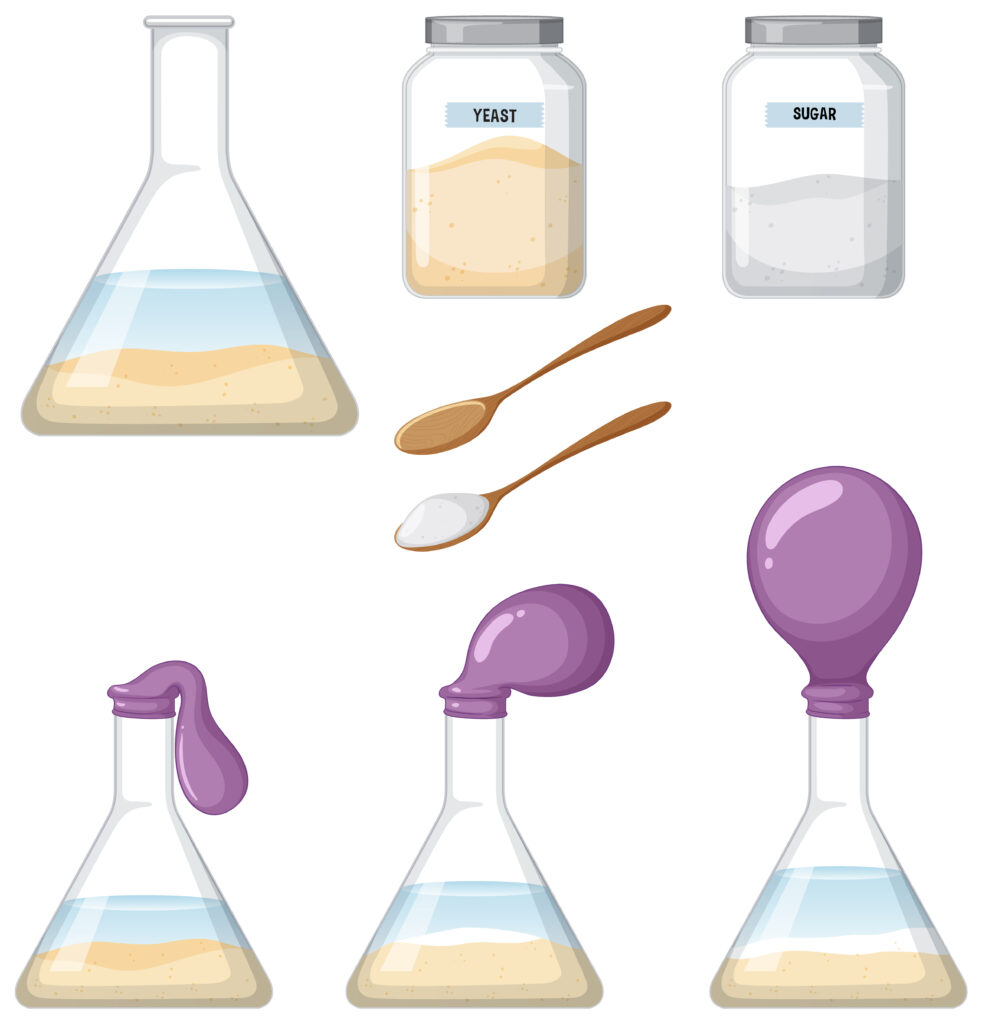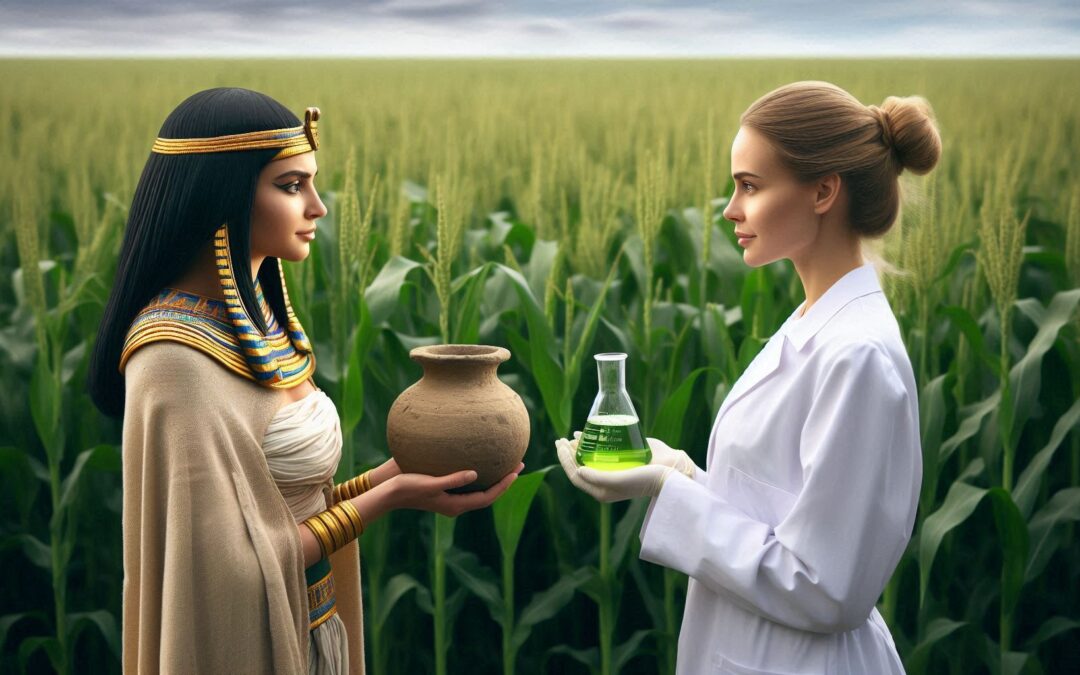Fermentation is perhaps one of the oldest technologies that has accompanied humanity for thousand of years. Throughout history, numerous evidences and traces have been found that demonstrate the use of fermentation by several cultures and civilisations, as a common and fundamental practice in the production of food and beverages, or even for medicinal and ceremonial purposes.
For example, archaeological remains have been found in China (7000-6600 BC ) of a fermented drink made from rice, honey and fruit in ceramic vessels, or in Iran (5000 BC) ceramic jars with wine residues, or Egyptian hieroglyphs and papyri (2500 BC) describing the production of beer and wine, as well as their consumption in religious ceremonies everyday life.

In addition, the analysis of botanical remains (seeds, plant fragments) has provided evidence of the use of fermented plants, or more recently the analysis and study of the DNA of yeasts and other microorganisms has provided genetic evidence of the use of fermentation since ancient times. These ancient methodes laid the foundations for the use and evolution of a practice that has evolved significantly over time.
The application of biotechnological techniques for the manufacture of pharmaceutical, biofuels, fertilisers and nutritional supplements has proven to be an age-old tool that has been adapted and sophisticated to suit today´s needs.
Global challenges such as environmental sustainability, food security, food scarcity, waste reduction and recovery find in fermentation a powerful tool to address these problems.
In this way, the use of different microorganisms can be the key to the revalorisation of different by-products and waste from industry, transforming them into high-value products such as biofuels (biodiesel, biogas), biodegradable compounds (bioplastics), or molecules of interest (lipids, organic acids, dyes, etc.) that can be incorporated back into the value chain thus contributing to a circular economy.
Fermentation can transform some agri-food by-products, which would otherwise be wasted, into products with an improved organoleptic profile by reducing or transforming undesirable compounds that negatively affect taste and texture. In this way, fermentation processes can improve the organoleptic profile and, thus the acceptability of certain by-products, which can then be incorporated back into the value chain.

Another future challenges is the increase in the world´s population, which brings with it an increase in demand for protein and poses challenges to the sustainability of traditional protein sources such as meat and dairy products. This is where the use of microorganisms, in this case fungi fermentation, emerges as an alternative to traditional protein sources. Fungi fermentation is key to obtaining microproteins that allow the development of flavours and textures that mimic meat and are sensorially appealing to the consumer. These types of proteins are rich in high quality nutrients, and are also presented as an alternative that requires fewer natural resources (water and land) and produces fewer greenhouse gases.
Fermentation also has the potential to mitigate pollution, playing an important role in waste management and pollutant reduction. Thus, certain organic wastes (waste oils, industrial waste, polluted waters) can be fermented to produce biogas, fertilisers and bioplastics, or it can be used to treat wastewater by reducing organic compounds before they are released into the environment. These processes can also be used in biorremediation processes, soil and contaminated area treatments.

According to the latest research, certain bacteria and fungi could be used to ferment and degradeplastics, such as polyethylene and polyester, or even use them as a source of carbon to obtain compounds of interest.
Therefore, fermentation today isn´t restricted to its use in the food industry for the production of fermented foods. Society must recognise and explore the alternatives offered by biotechnology, and in particular fermentative processes, to face present and future challenges.
Harnessing the abilities of bacteria, yeasts and fungi to transform waste materials into useful products, reduce waste and pollution will allow us to move towards a cleaner and sustainable future, thanks to micro-organisms, felow travellers that have served mankind for thousand of years, and may now be the solution to many of our future challenges.
- Fermentation, travel partner - 5 July 2024
- A pilot experience with a constructed wetland - 23 August 2018
- Plastic planet - 3 July 2018
